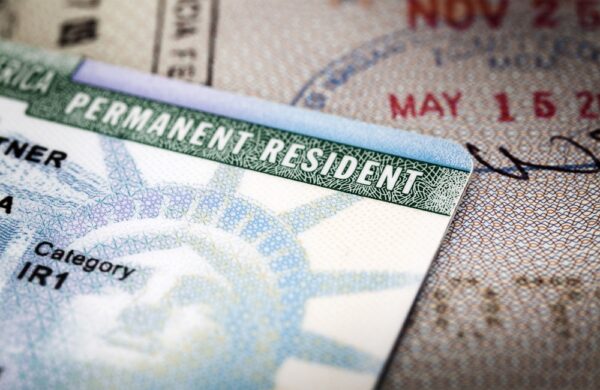New Zealand is a beautiful country with scenic landscapes and a temperate climate. This peaceful environment combines a great quality of life, job opportunities, and high educational standards to place the country among the most popular destinations for immigrants. New Zealand has a growing economy, and the government is dedicated to strengthen it. So, the New Zealand Immigration Service (NZIS) offers lucrative programs to support prospective immigrants that can positively impact the country's economy.
Why is New Zealand an Attractive Option for Immigrants?
New Zealand has long become a desirable place for migrants in recent years. Aside from a flourishing economy and beautiful landscape, the country has a lot more to offer. The low population density and friendly neighborhoods appeal to foreigners seeking a fresh start in a serene environment.
Another force of attraction NZ has on people is its abundance of natural wonders. Nature-loving people and outdoor enthusiasts will enjoy hiking, skiing, and surfing here. The NZ government is also committed to promoting environmental sustainability, which makes it a top destination for eco-conscious people. Initiatives like promoting renewable energy sources and protecting endangered species are geared towards preserving the natural heritage. It is also easier to maintain a healthy lifestyle here with access to cleaner air, water, and surroundings.
In terms of education and healthcare, New Zealand’s ratings are off the charts. The healthcare system is designed to ensure that citizens and residents have access to essential medical services regardless of their income or employment status. Similarly, the educational system provides safe learning environments and access to world-class equipment. The learning institutions span across a wide range of industries, including agriculture, business, engineering, and medicine. Lastly, the availability of job opportunities serves as an incentive for students to put in their best and make good grades.
Furthermore, the country has benefitted from the varying skillsets of foreign workers and the cultural diversity, making it even more attractive for immigrants. As a result, some policies have been put in place to create a soft landing for immigrants. Let's find out how to qualify and benefit from these policies.
New Zealand Immigration: Ways to Travel to New Zealand
There are several ways to move to New Zealand. We have highlighted the best channels to secure a New Zealand immigration visa via the available programs. So, if you're looking to migrate to NZ for a job, school, or other reasons, check them out below:
1. Immigration by Employment
Many prospective immigrants have their sights set on the rewarding job opportunities New Zealand offers. However, you will need a resident visa (also known as a work permit). It will allow you to work over a given duration in the country. The country issues about a hundred different work visa options. While some types of visas allow you to live and work as a permanent resident, most options have limits ranging from 12 months and above. You must be skilled with experience and qualifications to be eligible for these visas. Furthermore, the employer has to prove that there are no available NZ citizens to fill the role.
New Zealand Immigration uses a point-based system to consider skilled migrants who apply for permanent residency. You need to score six points to be selected. Academic qualifications, work experience, and a contract from an accredited New Zealand employer will give you more points. Also, your job must pay at least the median wage, the maximum age is 55, and you should have an IELTS 6.5 band score.
Additionally, if your skillset is within the New Zealand Green List, your immigration process will be smoother with fewer verifications. You can easily set up a New Zealand Government RealMe account online and apply for most work visas. However, some require you to apply in person at the immigration office in your country. Also, once your visa is approved, apply for an IRD number from Inland Revenue. Give the code to your employer when you start working for tax identification.
2. Immigration via Education
If you wish to study in New Zealand for more than three months, you will need a student visa. You must first be accepted into a New Zealand educational institution to qualify for a student visa. The available programs depend on approval from the New Zealand Qualifications Authority (NZQA). You are only allowed to enroll in courses that have been approved.
These temporary visas allow international students to work up to 20 hours per week during the academic term and full-time during holidays. Additionally, you have the option to bring your immediate family members (spouse and children) as dependents. However, some student visas are strictly for educational purposes, and you are not permitted to work or bring family members on these visa types. Therefore, it is crucial to apply according to your specific intentions.
You can submit your visa application online through the government's official immigration website or at the New Zealand embassy or consulate in your home country.
3. Immigration by Investment
New Zealand has a range of investment visas that allow for permanent residency. These investment visas are issued to wealthy individuals who have the necessary financial means to invest in New Zealand. You must meet the financial requirements to be eligible for an investment visa. The financial criteria change depending on the type of visa you are applying for. For instance, the Investor 1 category visa requires an investment of at least NZD $10,000,000 in the country and this grants you residency. Also, you must have spent at least 73 days in two of the last three years in New Zealand to be granted this residency visa.
Meanwhile, investing at least NZD $1,500,000 in the country grants you residence in the Investor 2 category. Furthermore, you must be 65 or younger to qualify for this category. You must also meet minimum English language standards and have been in New Zealand for at least 146 days in each of the last three years. Most investment visas allow you to live indefinitely in New Zealand, but some may have a limited validity period. Therefore, you should always check the conditions of your visa carefully before submitting your visa application.
4. Immigration for Entrepreneurs
This New Zealand immigration pathway allows you to apply for a long-term business visa. It can be challenging to get a straight-to-permanent residency visa using this method. You can apply under the Entrepreneur or Entrepreneur Plus categories. They have distinct qualification criteria and benefits.
For the Entrepreneur category, you must have established a business in New Zealand and been self-employed for at least 2 years. You may need to demonstrate to the NZIS that your business has benefited the country.
On the other hand, Entrepreneur Plus Category applicants must have successfully established a business in New Zealand, be self-employed, and have invested at least NZ$0.5 million in the country. Furthermore, you must provide proof that you have created at least 3 full-time jobs for citizens or residents of the country.
5. Immigration for Retirement
A New Zealand retirement visa is your best bet if you want to move to New Zealand for your retirement. New Zealand offers two retirement visa options for anyone wishing to retire. However, you must meet the retirement criteria to be eligible for a retirement visa in New Zealand. The most important criterion is that you must not have any dependent children. This is because retirement visa holders do not have work permits and cannot bring in dependents.
The two available NZ retirement visas are the New Zealand Temporary Retirement Visitor Visa, which is for retirees over the age of 66 who have up to NZD $750,000 to invest in New Zealand, and the New Zealand Parent Resident Retirement Visa, which is for retirees who have a child who is a citizen or permanent resident in New Zealand. You must meet the investment criteria to qualify for either of the two. Other eligibility criteria vary based on the type of retirement visa you are applying for.
The Temporary Retirement Category serves a visitor visa which attracts a NZD $2,600 application fee. Applicants must invest NZD $750,000 for at least 2 years in an approved investment once accepted. Lastly, the New Zealand Immigration Service requires proof that you have at least NZ$500,000 in maintenance funds, an annual income of at least NZ$60,000, and health insurance during the duration of your stay.
6. Business Expansion Immigration
This method is similar to investment immigration but with different perks. The New Zealand Immigration Service requires proof that you run a successful franchise in your country of origin or residence and that you can successfully expand to and operate in New Zealand.
Immigrating using this platform is expensive, especially because the franchise has to be successful in NZ. The major downside is that you have a low chance of getting a residence visa despite the cost. Character requirements and English language proficiency also apply to this channel.
7. Immigration for Family Reunification
This method of New Zealand immigration is mainly for citizens and permanent residents. Moreover, Non-citizens who want to bring family members can apply for a New Zealand family visa. It is important to note that only direct-related family members are eligible to join you in NZ. This means you can only bring your spouse, parents, children under 24 years of age, and grandparents.
Furthermore, you must have more family in New Zealand than in your current country to qualify. The NZIS will check your family status and other important eligibility criteria before granting the visa.
Conclusion
New Zealand ranks high in job and investment opportunities, education, and public healthcare. As a result, many foreigners are vying to move there. Thankfully, there are many legal pathways to secure New Zealand immigration. We reviewed the most popular channels, stating their application methods and eligibility criteria. Other factors like character requirements and nationality may affect your application. Additionally, Australian citizens with no criminal convictions do not need a visa to visit, live, and work permanently in NZ. Meanwhile, US citizens can only visit for three months or less.
















